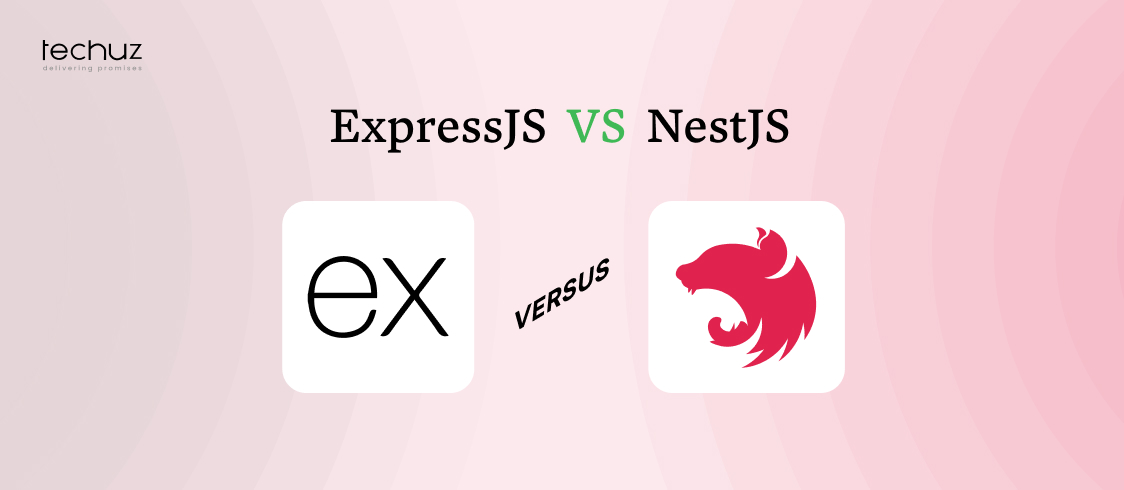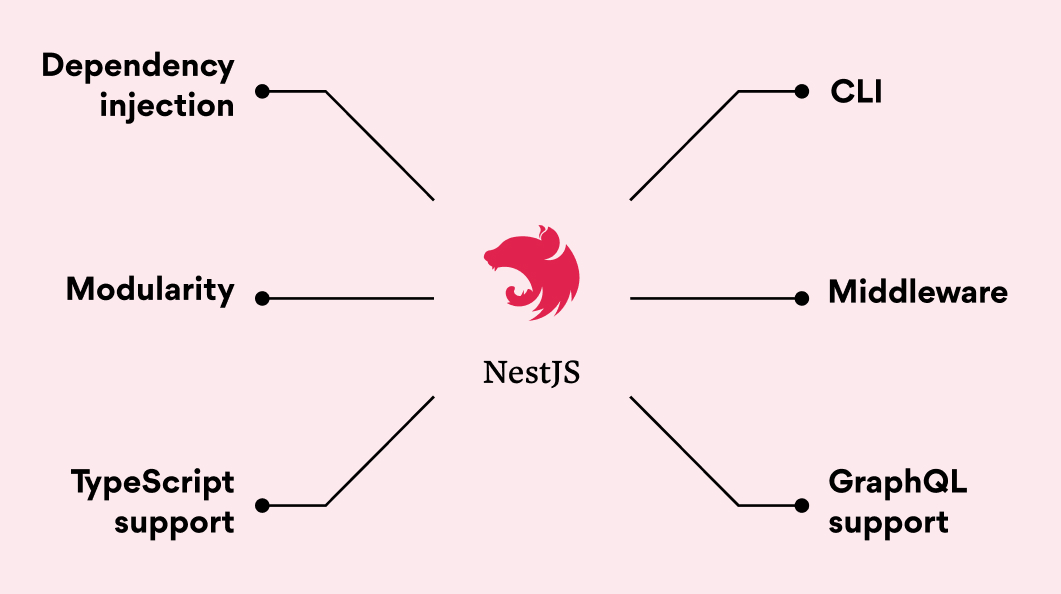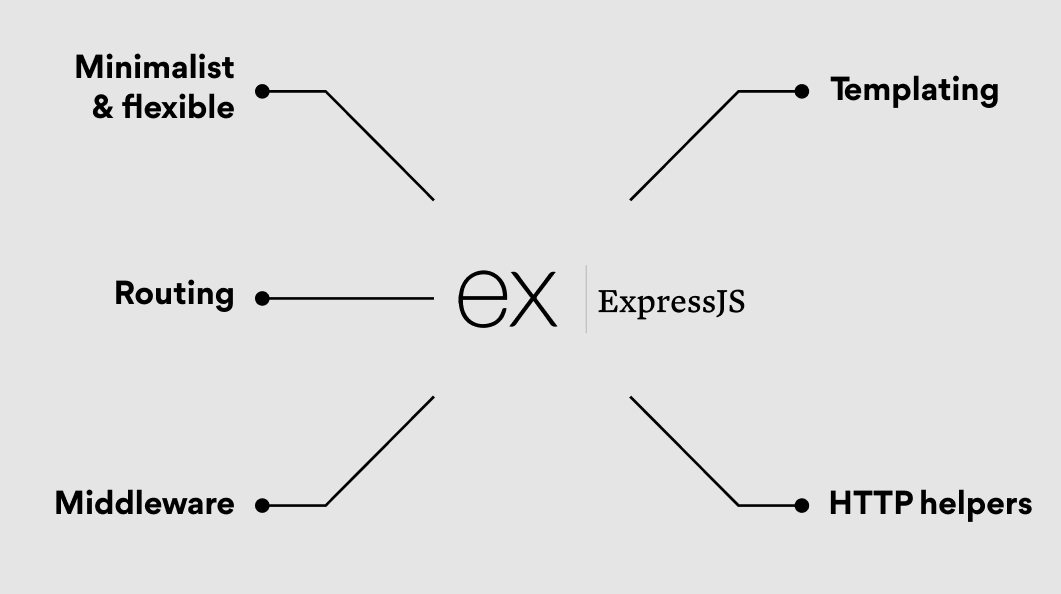Posted on
October 25, 2024
Read time
 8 mins read
8 mins read
In the dynamic world of web development, JavaScript frameworks have emerged as indispensable tools for building efficient and scalable applications. These frameworks provide a structured approach, reusable components, and built-in features that simplify the development process. Among the plethora of JavaScript frameworks available, NestJS and ExpressJS have gained significant popularity due to their unique strengths and capabilities.
NestJS, a progressive Node. js framework and is particularly popular due to its modularity together with a rich set of functionalities. NestJS is developed based on Angular and provides a clear structure to design CI-CD scalable and maintainable applications. On the other hand ExpressJS is a small framework with minimal set of features which is leaned toward flexibility to create web and mobile applications. It is simple and versatile therefore it can be used by developers of all levels of experience.
Table of Content
NestJs: The Backend Powerhouse
NestJS is a progressive Node.js framework based on the Express framework that provides tools to programming and maintain applications more easily using MVC architectures. js framework that is based upon TypeScript. It operates along a modular structure model borrowed from Angular and this makes it highly scalable and arranged. NestJS has some built-in features such as dependency injection, modules and middleware hence it’s make nodejs development ideal for complicated application that are deemed to be large enterprise ones.
How is it useful?
NestJS gives a prearranged design and clean application pattern to develop Node. js applications. It is more of a component-based architecture thereby enhancing code reuse and reducing the complexity in development of large projects. The dependency injection system of the framework help to the manage the dependencies and the process of loosing coupling. Moreover, NestJS has a diverse third-party module of extension tools which enriches the framework and makes it suitable for various requirements in development.
Key Features
- Dependency injection: One is that NestJS utilizes structural features to achieve automatic dependency management that minimizes tight coupling thereby enhancing code testability thus enabling easy modification of components without affecting the complete system.
- Modularity: NestJS was designed in a way that it will allow one to easily create maintainable and reusable code especially when working on large projects.
- TypeScript support: NestJS makes TypeScript its first-class citizen and this results into better code quality, type-safed code, better code readability and improved tooling support.
- CLI: The CLI built in NestJS helps a lot in setting up project, generating codes and other management tasks all facilitated by the command-line tool.
- Middleware: In terms of middleware, NestJS provides ways of intervening in request and response processing for such tasks as authentication, logging, and error handling.
- GraphQL support: Another prospective of GraphQL in NestJS is that it will unburden clients from loading more data than they actually need, which will considerably enhance the performance and decrease the load.
Ideal Use Cases
- Large-scale applications: The use of dependency injection and the possibility to split the application into multiple services in NestJS allow to use this framework in complex and tough applications.
- Microservices architecture: The elements of the given framework are quite modular and, thus, can be considered as suitable for the development of microservices.
- Enterprise-grade projects: Comparing Enterprise Application requirements to NestJS shows that it fulfills all the needful of enterprise levels such as security, performance, and maintainability.
- Applications requiring high scalability and maintainability: This is due to NestJS’s architecture stress on modularity as well as organisation of code to make sure that applications favourable scale and longevity.
Conclusion
Therefore,NestJS is a robust and flexible framework that provides a systematic and optimal way of developing Node. js applications. It is also flexible and mutable for it is based on the modular architecture, dependency injection, and features a rich ecosystem of libraries and frameworks to choose from, hence it would be a great fit for a variety of projects – particularly those that are going to be scalable, maintainable, and that require a heavy degree of customization.
ExpressJS: The Backend Champion
ExpressJS is a bare-bone and very adaptable foundational framework for Node. js web application framework. It was Purpose-built as a gaming API, and hence offers a simple and highly usable API. It can also be said that ExpressJS is suitable for the development of various web and mobile applications.
How is it useful?
ExpressJS provides highly extensible platform to build Node. js applications. This means one is able to easily understand how a given program works and this helps the programmer to design and develop complex projects which address his needs without having to struggle with the numerous complexities involved in programming. ExpressJS also comes with a rich middleware and plugins, through which extend the range of features of ExpressJS, making it viable for different scenarios.
Key Features
- Minimalist and flexible:The ExpressJS has a small interface and plain and simple API which will help to build out applications for nearly any type of need.
- Routing: ExpressJS provides the capability to define routes where incoming HTTP request can be related to a specific function which can accommodate the request, process data and then return a response to the client.
- Middleware: Middleware functions in ExpressJS are opportunities to extend certain features of the server on the need basis of the developer by intercepting the request and response.
- Templating: ExpressJS allows Templating engines that helps in rendering HTML on the go depending with data to enable the creating of attractive web applications.
- HTTP helpers: HTTP request/response processing in ExpressJS is supported through the set of intrinsic utility functions that simplify various operations and thus assist in building applications.
Ideal Use Cases
- Small to medium-sized applications: While being considered very simple, ExpressJS provides enough feature set to create middle-sized and efficient applicaitons for web and mobile platforms.
- RESTful APIs: ExpressJS is a perfect tool for creating pure and lightweight RESTful APIs, while having all the necessary features to work with different types of routes and methods.
- Proof of concepts: The good thing with ExpressJS is that it is very easy to use in the creation of a proof of concept application since it’s very malleable.
- Rapid prototyping: ExpressJS offers the use of each feature in an agile manner that makes it easy to develop applications with iterations and feedback from users, which in turn makes it possible to create prototypes and improve the application easily.
Conclusion
Therefore ExpressJS is light weight and flexible framework which can be used for building Node.js applications. Because of its easy to use interface, the variety of options it has and the size of the QcpostData community it has become the go to tool for multiple projects. Even though ExpressJS does not have the level of structure and included functionality provided by NestJS, it is incredibly effective for quick prototyping and the creation of applications of medium size. From a basic REST API application to a feature-rich web application, you have all the tools, and freedom, you need in ExpressJS.
When to Choose NestJS or ExpressJS
When to Choose NestJS
- Large-scale, complex applications: Another advantage and strength of NestJS is that it is built with modularity and dependency injection which is favorable for the complicated and high demanding projects.
- Microservices architecture: With modularity and scalability as some of its key features, NestJS is ideal for development of microservices.
- Enterprise-grade projects: Due to power and flexibility, extensive use of the latest technologies and tools, NestJS is good for critical applications.
- Teams familiar with Angular or TypeScript: NestJS shares architecture similarities with Angular as well as TypeScript support, which might become appealing to teams familiar with these technologies.
When to Choose ExpressJS
- Small to medium-sized applications: ExpressJS’s simplicity and relatively small amount of features will work well with smaller projects.
- RESTful APIs: ExpressJS is great to use when you want to create optimized and scalable RESTful APIs.
- Proof of concepts: ExpressJS also has the advantage of rapid prototyping and is specifically useful for showcasing ideas for an application.
- Previous experience of the teams in Node. js: ExpressJS is actually the fundamental framework of Node. js development, and for good reason, it has become fairly well known as a favored method for many Node. js developers.
Overall, it can be concluded that it is up to the given project features, team preferences, and thevert level of complexity to choose in favor of NestJS or ExpressJS. These include factors like size of the project, scalability requirement, the kind of team available and the features available in each of the frameworks.










